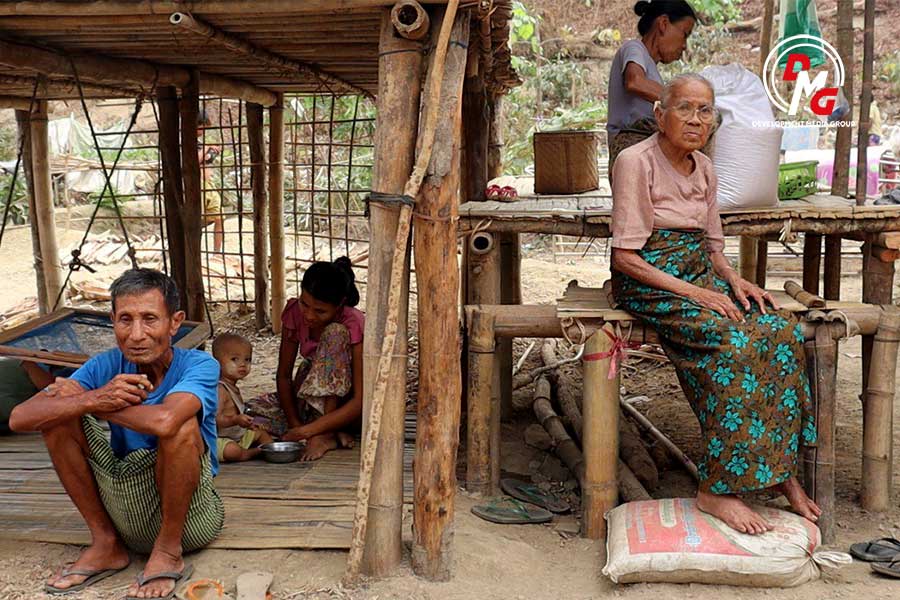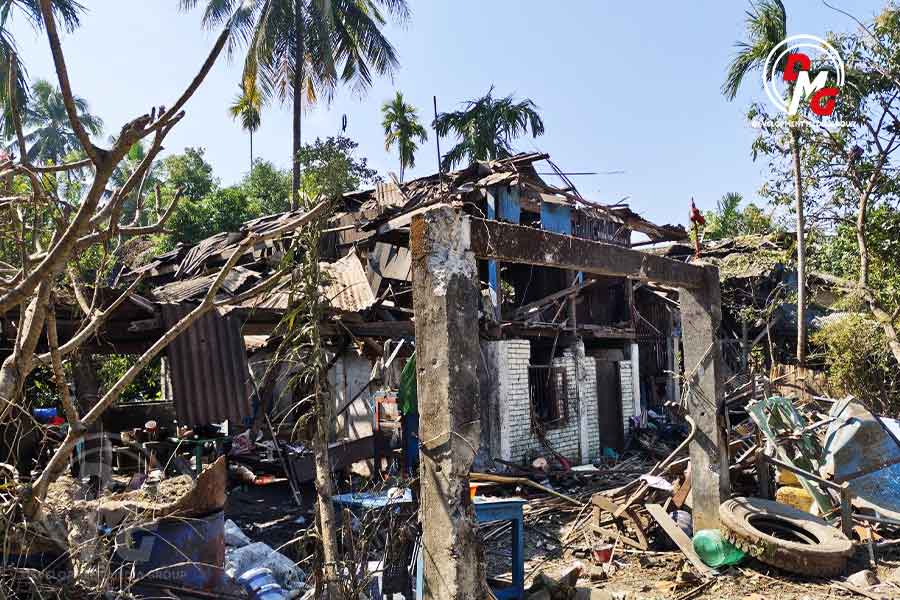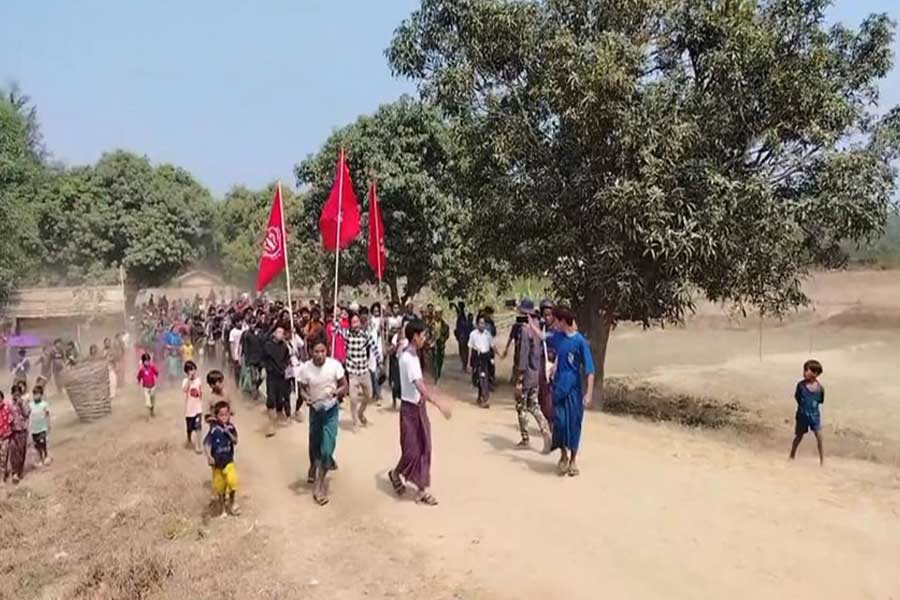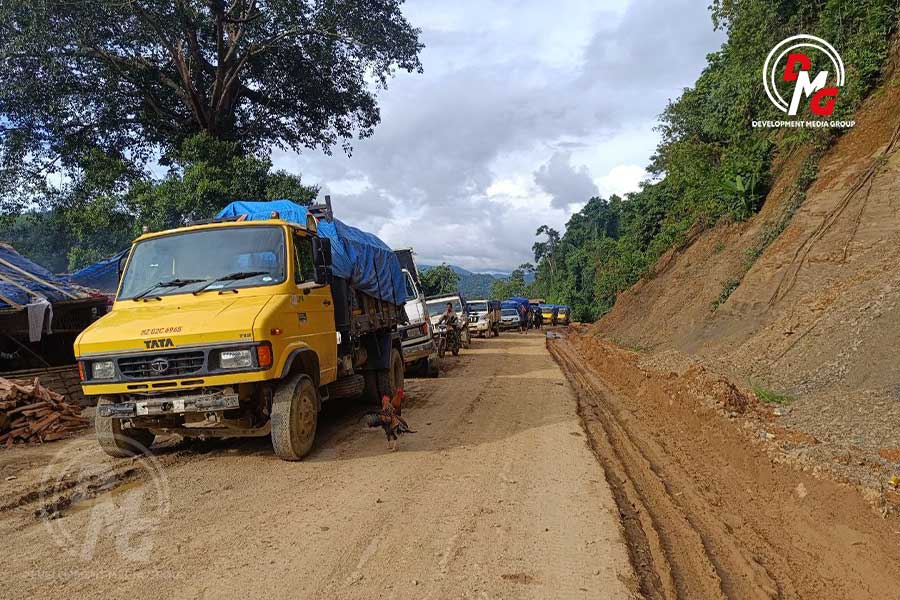- Two civilians killed, two injured in junta airstrike on Ramree village
- Bo Nagar’s defection raises security fears for resistance forces in Myanmar’s heartland
- Weekly Highlights from Arakan State (Feb 2 to 8, 2026)
- Freedom of expression curtailed in resistance-controlled areas, report finds
- Conflict leaves Arakan’s historic pagodas in ruins as restoration stalls
57% of families in central Arakan can't meet basic food needs: WFP
The World Food Programme (WFP) reported on August 12 that 57 percent of households in central Arakan State are unable to afford to meet basic food needs as a result of the ongoing military conflict.
13 Aug 2025

DMG Newsroom
13 August 2025, Ann
The World Food Programme (WFP) reported on August 12 that 57 percent of households in central Arakan State are unable to afford to meet basic food needs as a result of the ongoing military conflict.
The proportion of food insecure households in Arakan State has increased from 33 percent in December 2024 to 57 percent currently.
"While these findings suggest alarming levels of food insecurity, indicating a worsening of the acute malnutrition situation in central Rakhine [Arakan State], it is expected that the situation in northern Rakhine is much worse due to active conflict and access issues," WFP said.
According to WFP, locals in Arakan State face a variety of challenges to survive, including debt, begging, domestic violence, school dropouts, social unrest, and human trafficking.
A 38-year-old displaced woman from Ann Township said: "I try my best to feed my children as much as I can. There are days when I can't even eat two meals. I don't have a regular income because I don't have enough work."
WFP is appealing for more humanitarian assistance for Arakan State, where food shortages and malnutrition are on the rise due to conflict, blockades and funding cuts.
WFP had to suspend assistance to over one million people in Myanmar in April 2025 due to insufficient funding.
The suspension of funding has made living conditions for displaced people across the country, including in Arakan State, even more difficult, with some increasingly relying on donations to cope with food shortages.
Ko Kyaw Soe Naing, who is familiar with the situation in Pauktaw Township, said: "The displaced people from Myayngu Island have even had to go door to door to beg for rice from the villagers." WFP says it needs US$30 million to support more than 270,000 people in Arakan State over the next six months.
"Without urgent action, this crisis will spiral into a full-blown disaster," said Michael Dunford, WFP's Myanmar Country Representative. "The world must not look away."
In the areas where food needs are the most acute, WFP is struggling to restore assistance amid limited funding, and the international community is calling for increased humanitarian funding.
The Arakan Army (AA) has completely seized control of 14 of 17 townships in Arakan State, while Sittwe, Kyaukphyu, and Manaung are still under the control of Myanmar's military regime.
A man from Ann Township who helps displaced people said, "As an organisation, we can only help if we have funding, and the number of displaced people is far from the amount we can help. Now, with rising prices and no support from other international organisations, the displaced are facing difficulties in every way."
There are over 600,000 internally displaced people (IDPs) in Arakan State who have been uprooted by the military conflict. Many are facing food insecurity and hunger due to lack of aid, job shortages, and rising prices.
Meanwhile, heavy rains in Arakan State from June to July this year caused flooding, affecting more than 42,000 people in Taunggyi, Kyauktaw, Ponnagyun, Mrauk-U, Minbya, Buthidaung, Maungdaw and Rathedaung townships.
















.jpg)
